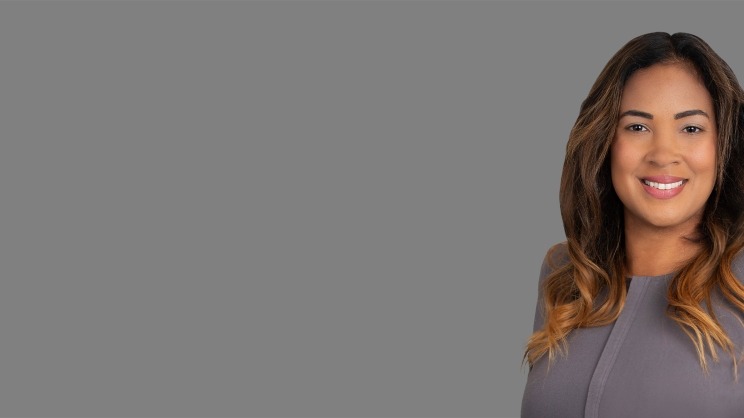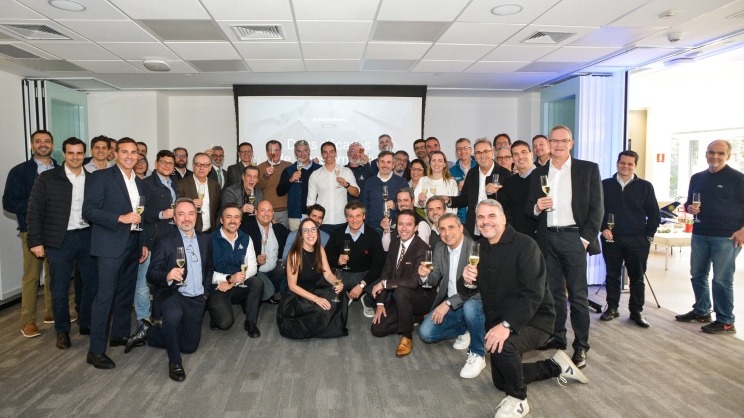Campus Spotlight: Griffen Schmelter

An Analyst’s Insights on Why Nurturing Your Network and Maintaining Connections Is Essential at All Career Stages
Griffen Schmelter is an Analyst with Alvarez & Marsal’s (A&M) North American Restructuring & Turnaround practice in Chicago, Illinois. He earned his bachelor’s degree from Indiana University Bloomington.
In the following Q&A, Griffen highlights the importance of staying informed and the publications on which he relies. He credits his parents for teaching him to treat others with kindness and positivity, a principle that guides his interactions. Griffen also emphasizes maintaining connections with friends and acquaintances from various life stages, ensuring a robust support system and a broad network of contacts that enrich his personal and professional life.
Reflecting on your college experience, what unexpected lessons or insights have you gained that have significantly impacted your career?
The most important lesson I took away from my college experience was not worrying about things I can’t control. In college, you have weeks where you have a big paper due on Tuesday, then tests on Wednesday and Thursday. Stressing out about circumstances you cannot change is not productive. You are always better off making the best out of a challenging situation rather than letting it affect your mood. I specifically work with companies in distress, and there are new or unexpected issues that always come up that I have no control over. So, you can either be angry that something is not going according to plan or adjust and make the best of it. I prefer to make the best of it.
Why did you choose to be a Summer Analyst at A&M?
I was intrigued by both the consulting and banking career paths. After looking closely into banking, I really enjoyed the financial analysis that they specialized in, but I wanted to have more exposure to a company's operations than an investment banker would typically have. A&M allows me to be involved in business operations while still being able to build the financial models that intrigued me. That breadth of experience is what first drew me to the restructuring group at A&M.
What motivated your decision to join A&M full-time?
After my Summer Analyst experience, I was confident in my desire to return to A&M full-time. I had the opportunity to cycle through multiple deal teams and meet many people within the Chicago office and colleagues from other offices across the U.S. I can confidently say that they are the most intelligent and hardworking collection of people I have ever been around. At the end of my Summer Analyst experience, I took time to evaluate my growth from the beginning to the end. I am happy to say that my development has continued throughout my first year as a full-time Analyst.
The Importance of Incorporating Fun, Asking for Help and Prioritizing Lifelong Learning for Career Growth
Which office are you based in, and how would you describe the office culture?
I am based in the Chicago office, which has a fantastic culture. Colleagues and senior management are very accessible and willing to answer any questions. The most valuable thing I have done is take the problems I am experiencing with my current case and ask my coworkers if they have dealt with similar issues. The Chicago office provides a massive pool of knowledge that is very useful. It is also just a fun place to be. Over my first eight months in a full-time role, we organized ad hoc after-work events like trips to a golf simulator and tennis in Maggie Daly Park and larger after-work group happy hours.
Reflecting on your career's initial stages, what unexpected challenges did you encounter, and how did you navigate them to emerge stronger?
The hardest part about starting your career is being able to jump into problems and be confident in how you want to manage them. In the early part of my career, I relied heavily on my colleagues to provide knowledge or context when I was unsure how to proceed. As time went on, it became clear to me that a solution to a problem is not always immediately known, and often, you need to seek out context from the client, your colleagues and sometimes a well-worded Google search. As time passes, you will become more confident in your technical skills and, for lack of a better phrase, become more adept at “handling stuff.”
How do you stay updated on industry trends and developments, and what resources do you rely on for continuous learning and growth?
The best way to stay updated is to read as much as possible. There are industry-specific restructuring publications that are helpful. However, many large deals are covered by mainstream publications like the Wall Street Journal. Various factors contribute to restructuring activity, like interest rates or consumer activity, making staying current on mainstream financial news critical. I always start my day reading a few newsletters on my way into the office on the train (i.e., Exec Sum, Short Squeeze and Morning Brew).
Some restructuring-specific publications that I like are:
- Turnaround Management Association – This organization has many articles on restructuring trends, and, if you are a student, you can become a member for free.
- Petition – This is a subscription publication, but they offer a student pass, which makes it cheaper. Petition also releases one free article per week.
Understanding the Benefits of Mentorship in Personal and Professional Development
Who are the individuals you consider your closest mentors, and what valuable lessons have you learned from them?
My two parents are my greatest mentors. The most important thing I have learned from them, and the most important lesson of my life, is that it matters how you treat and interact with others. Whether it be your best friend or someone walking by you on the street, you must be a net positive to those around you. It is as easy as walking into work or your apartment with a smile. Being a bastion of positive energy and good intentions will only make you and everyone around you happier.
Looking back, what advice would you offer recent graduates about effectively transitioning from academia to the professional world?
I suggest thinking critically about how you are spending your time. In college, I always felt like I was running short on time to do everything I wanted in a day. As you start working, that becomes more difficult, so I try to use the time when I am not working as efficiently as possible. I bring a gym bag to work so I can go straight from work to the gym, saving time, and I started planning my weekly meals on Sundays to get straight to cooking when I get home. This is all so I have more time to hang out with friends and go to concerts/comedy shows.
How do you approach networking and building professional relationships, and what tips would you offer to others just starting?
As a young professional, your professional network is your friends from college, high school or the kid you were friends with for a summer in fifth grade. You already have a vast network. The difficulty becomes maintaining it. On Sundays, I try to call a friend I have not talked to in a while and learn what they are up to and how they are doing. You are in a great spot if you can maintain connections with the people you already know. As far as trying to expand your network, that will happen naturally as you meet new people at your company. People who work at A&M go on to do extraordinary things if they decide to leave, so try to stay connected with them as they go through their careers.
What notable rewards or benefits have you experienced working in the consulting industry?
I had the opportunity to travel to New York for my first six months at A&M. I am a bit of a foodie, and it was so much fun to have team dinners at some of the best restaurants in the city. Team dinners are a wonderful way to unwind with the team after the workday, and it is when you truly get to know the people with whom you are working.
What is your favorite hobby or activity outside of work, and how did you get into it?
I grew up with two younger brothers, the youngest being three years younger than I was, so we would constantly be outside playing everything from football to badminton with a set we found at a garage sale. I am still obsessed with getting out of the house and playing sports. I have a few friends that I play pickup basketball with at a local park, and this summer I plan to get down to the lakefront as often as possible to play beach volleyball.
What is something on your bucket list that you hope to accomplish in the next five years?
I would love to visit the Grand Canyon and tour some of the national parks in Colorado. I have not had a chance to visit one of those places, and I think it would be a ton of fun to go camping with a few of my friends.



